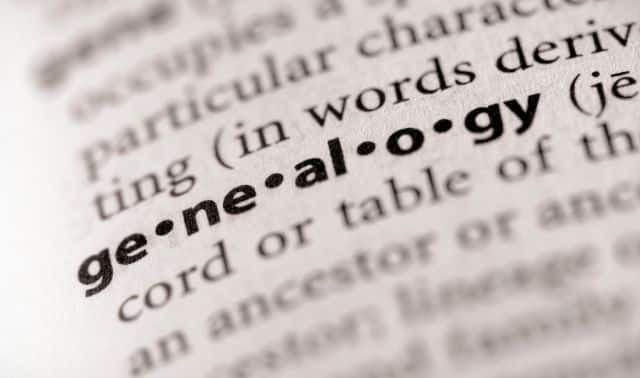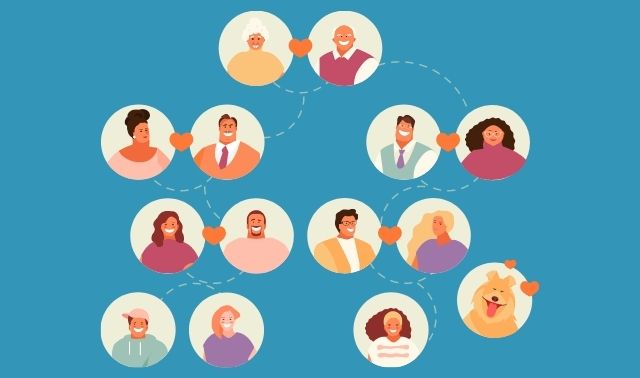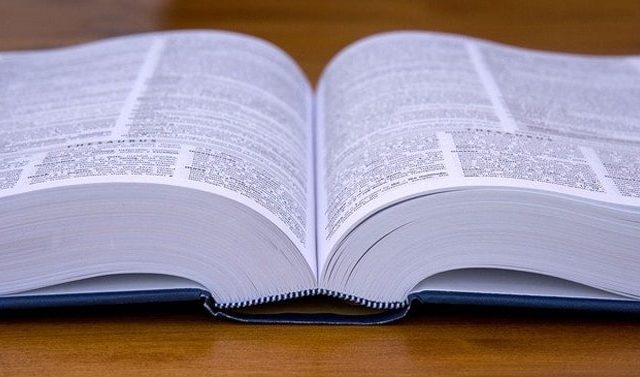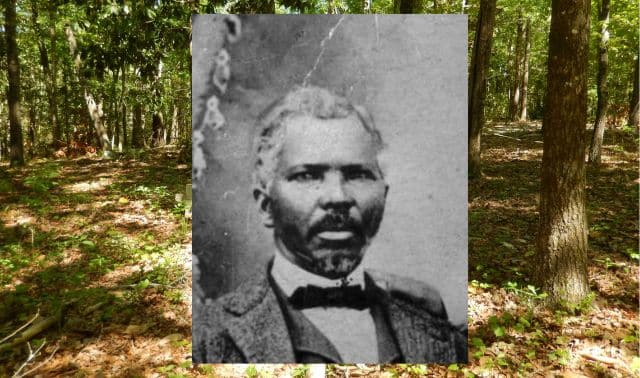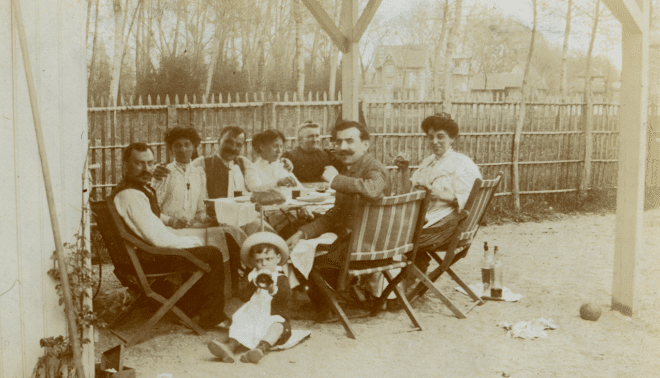Sign up for the Family Tree Newsletter! Plus, you’ll receive our 10 Essential Genealogy Research Forms PDF as a special thank you.
Get Your Free Genealogy Forms
"*" indicates required fields
Genealogy or family history? You may have wondered which term more-accurately describes how you approach your family tree. Although many (including us here at Family Tree Magazine) use the terms interchangeably, the two fields of study are sometimes thought to have distinct meanings.
Definitions: Genealogy vs. Family History
Simply put, “genealogy” is the study of a person’s direct-line ancestors—parents, grandparents, great-grandparents, etc.—proving descent back in time, generation by generation. (Indeed, genealogy is from the Greek genealogia, the “study of generation” or “making of a pedigree.”) Genealogists prioritize finding names and the dates and places of important life events like births, marriages and deaths through historical documents such as censuses and vital records. “Genealogy” might also refer to a report on the ancestral lineage of a person.
“Family history” is broader, referring to the more-holistic study of the people, places, objects, traditions and stories associated with a family. In addition to studying the basic facts of direct ancestors’ lives, family historians consider family stories and the social context in which their ancestors lived. They also generally expand their research to cover the details and experiences of non-direct family members such as siblings, aunts, uncles and cousins. They might pull additional details (such as addresses or occupations) from historical records, and consider a wider variety of sources, such as newspapers, maps, oral tradition and local histories. They could even seek knowledge about people not related to the target family at all.
The terms are not mutually exclusive; one can be both a genealogist and a family historian. But the two fields can have different priorities. A genealogist, for example, might simply want to know the names and birthplaces of their ancestors. But a family historian would be equally as interested in reconstructing what those ancestors’ lives were like, and learning about other members of their nuclear families.
Sample Genealogy Tasks
- Complete a five-generation pedigree chart (which, by definition, includes only direct-line ancestors).
- Find a fourth-great-grandfather’s birthplace.
- Determine a great-great-grandmother’s maiden name.
- Search newspapers for an ancestor’s obituary and any notices of birth and marriages.
- Source a wedding photo of an ancestral couple.
Sample Family History Tasks
- Complete a written family narrative that incorporates photos and family stories.
- Find out what led a fourth-great-grandfather to immigrate.
- Determine the names of a great-great-grandmother’s other children.
- Search newspapers for mention of a family member in news articles, society columns, etc., in addition to obituaries and notices of births and marriages.
- Source photos related to an ancestral couple: a wedding photo, a photo of their first home (both contemporary and present-day) and so on.
A family historian might also more easily fall into the role of “the” researcher in the family: the one who inherits photos, documents and other ephemera from relatives, and is tasked with preserving them in some way.
Is There a Difference Between ‘Genealogist’ and ‘Family Historian’?
Not all agree that these terms have different definitions. Lene Dræby Kottal, a professional researcher who holds the Certified Genealogist credential and specializes in Danish ancestry, argues that the two terms amount to a distinction without a difference.
“To me, a genealogist and a family historian are the same. Without data, there can be no narrative,” Kottal writes on her blog. “Without the narrative, a genealogy does not meet the industry standards. Context is essential when we research our family history.”
She cites the Genealogy Standards, a set of guidelines published by the Board for Certification of Genealogists. They compel genealogists to report on “aspects of identity, relationship, event or situations,” but also “artifacts, authored narratives, oral histories…and other sources concerning agriculture, demographics, DNA, economies”…and so on. Indeed, as part of the certification process, applicants must provide a narrative project.
Leading genealogy websites tend to agree with Kottal, blurring the lines between the two terms (emphases added):
- The National Genealogical Society: “Are a genealogist and a family historian one and the same? Well yes, sort of! Today, the two terms are used interchangeably most of the time…Basically both words mean the study of families, finding their stories, and tracing their lineage and history.”
- FamilySearch Wiki: “Genealogy is the study of your human ancestors, their families, descendants and the kinship relationships between them. Genealogical or family history research is the process of searching records to find information about your relatives and using those records to link individuals across several generations.”
- GenealogyBank: “Genealogy is tracing the lines of your ancestors and their descendants. It’s the history of your family. It is the untold stories of your ancestors you’ve always wanted to know. It adds details and color to your family tree offering insights into your ancestor’s daily lives. And most importantly, it’s the history that makes you, you.”
Alternative Names
If the above terms sound stuffy to you—or you don’t want to wade into a debate over which is correct—maybe consider these other titles:
- Family storyteller
- Family archivist
- Family history detective
- Ancestor-seeker
In a 2021 blog post, UK researcher Paul Chiddicks suggests some of his own (snarky) terms for someone only interested in certain aspects of ancestry: Tree Harvester (for someone who merely clips “branches” off family trees others have created), The Ethnicity Expert (for a DNA test-taker only interested in ethnicity results) and the Surfer (for someone who aimlessly “surfs” the web for ancestors).
Related Reads
Last updated: April 2023
FamilyTreeMagazine.com is a participant in the Amazon Services LLC Associates Program, an affiliate advertising program designed to provide a means for site to earn advertising fees by advertising and linking to affiliated websites.

